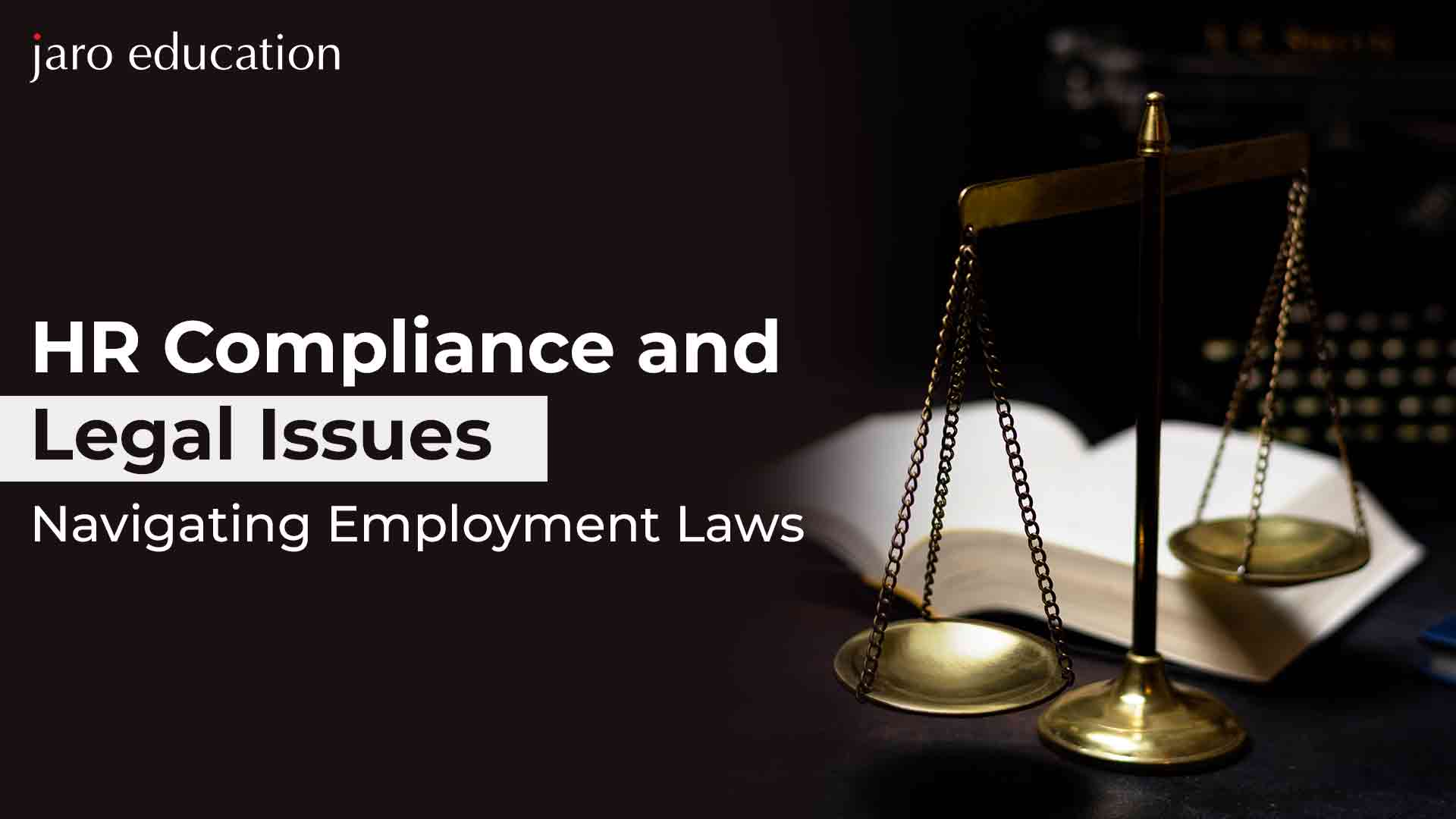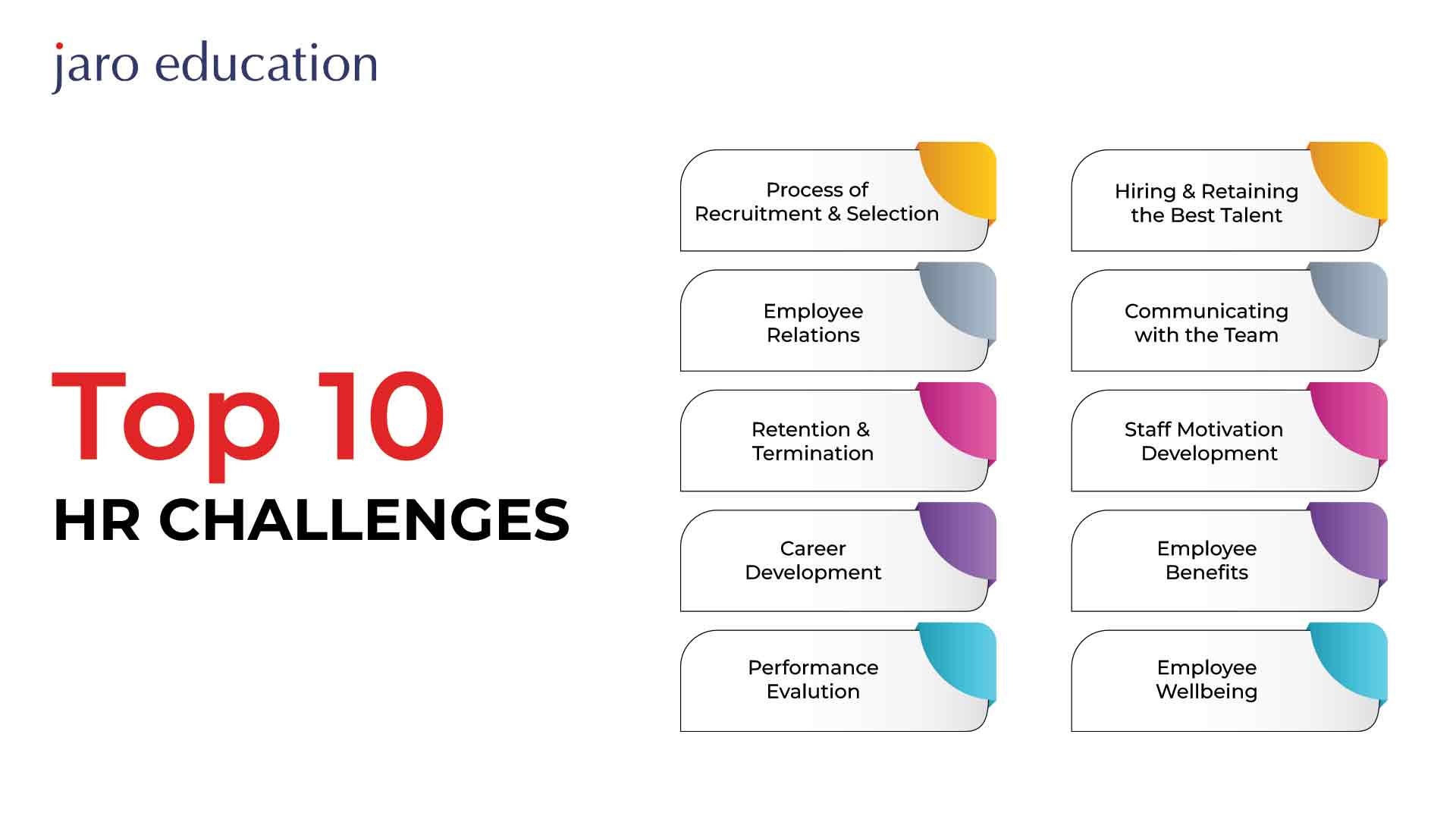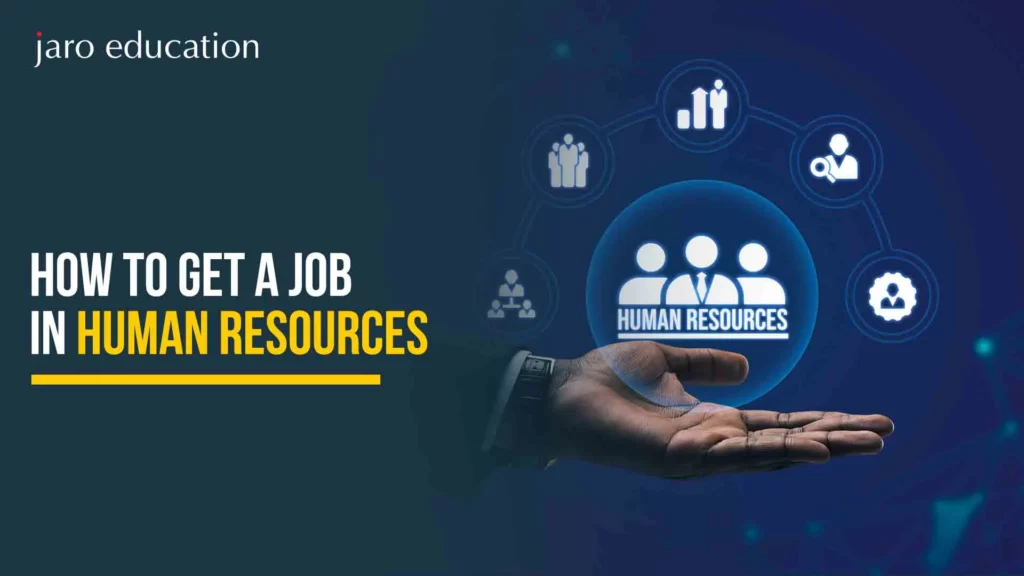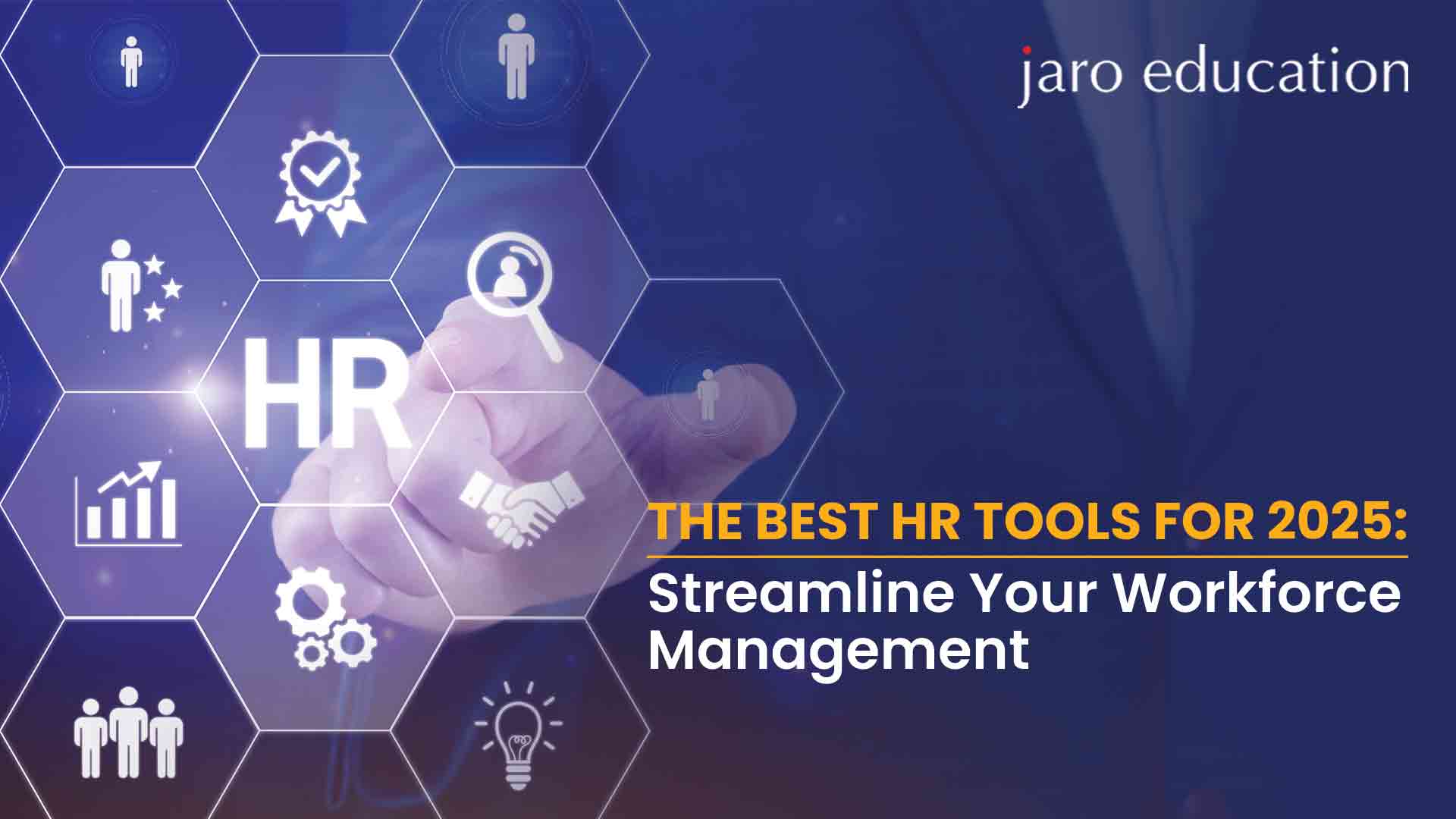HR Compliance and Legal Issues: Navigating Employment Laws
Table of Contents

- jaro education
- 20, October 2023
- 4:00 pm
The role of HR in organisational prosperity cannot be overruled for various reasons. While labour rules and regulations may be perceived only as a legal obligation, it is imperative when it comes to nurturing a favourable organisational environment for both employees and employers and preventing costly legal conflicts.
If you want to advance your career as an HR specialist or manager, IIT Delhi is offering an Executive Programme in Human Resource Management that opens unique academic gateways. This is a program that equips people with essential competencies for proficient performance and innovative orientation in the field of HR.
What is HR Compliance?
HR compliance is the act of making sure the human resource policies and practices of a firm are consistent with appropriate employment policies and rules. This includes keeping abreast with the dynamic legal landscape and ensuring accurate record-keeping and fair hiring practices, among other duties. It is not only a legal obligation; HR compliance is important in creating an amicable working environment, recruiting skilled personnel, and preventing expensive legal battles. The law covers several aspects that include pay and work regulations, anti-discriminatory and anti-harassment measures, as well as benefits for employees, and confidentiality of private information. The regulation web enmeshes employees with the organisation, whereby HR professionals are integral players in the navigation to ensure that the employees and the organisation are safe from harm.
Employment Laws in India
On July 1, 2022, there was a major change in the Indian Employment Laws in India that impacted multiple sectors and industries. Those new policies may make a profound difference in our approach to work as well as how an employer should organise their law workforce.
This includes rescheduling of work hours for employees’ benefit. In these new laws, employees are allowed for a maximum of three consecutive weeks of vacations which are determined by their daily working hours. Moreover, the settlement process of employees working abroad will not be left behind and this would facilitate smoother exits when leaving.
Additional changes were made in maternity leave, where female employees could get 26 weeks of maternity leave, and strict provisions on the night shift. This led to increased safety and security of women in the workplace as a result of better laws on safety.
Another notable change is in the earning scheme whereby more resources are channelled towards enhancing the basic salary portion which affects the calculation of provident fund. Such increases may result in an increment of employee provident fund contribution and perhaps lessening the amount remitted home by employees directly.
These law changes are also affecting the gratuity costs for companies, because in some countries, the maximum base salary has been capped at only 50% of the cost to company (CTC) which might result in a higher gratuity bonus. This is expected to result in changes in social security that could reduce wages.
Moreover, the new wage code stipulates a minimum 50% share of CTC for basic pay, affecting various allowances offered to workers.
The Working Time Act further defined overtime payment rules and specified that companies should pay overtime for all work done extending beyond 15 minutes of an 8-hour shift. Furthermore, employers’ leave entitlement rules were also amended so that workers are entitled to one hour off for every twenty days of work.
HR Responsibilities
Let’s explore the pivotal role of HR responsibilities in shaping the foundation of thriving organisations.
Wage and Hour Compliance
One of the most significant challenges in HR compliance relates to ensuring adherence to wage and hour regulations. It is essential to confirm that the organisation complies with minimum wage laws, overtime regulations, and accurately categorises employees as either exempt or nonexempt. Failure to do so can lead to potential legal disputes and associated costs.
Harassment and Discrimination Prevention
This is not only a legal requirement but also an ethical imperative aiming at creating a non-discriminatory workplace. They should have comprehensive anti-harassment and anti-discrimination policies, give orientation to employees and management employees on the same, and take prompt responses to any complaint.
Employee Benefits and Leave Policies
Employee benefits and leave policies are also covered by HR compliance. Keep abreast of the FMLA, ACA, or any other related law changes. Make sure that employee benefits offered by the organisation comply with the compliance laws and make sure that employees understand what they are entitled to.
Data Privacy and Security
With rising records breaches, HR specialists must take into account data security as a priority. Protect confidential employee information, adhere to data protection laws such as GDPR or CCPA, and establish guidelines on how to handle data and notify about data breaches.
Safety and Health Regulations
The well-being of your employees depends on compliance with safety and health regulations that would be controlled by bodies such as OSHA. Create safe working conditions, perform regular safety audits, and train workers in occupational safety.
Challenges for HR
As outlined, HR experts face various legal aspects to ensure compliance with HR labour laws. Some of the key HR laws they grapple with encompass.

Employee Time Tracking Laws
HR managers should adhere to relevant legal requirements for employee time monitoring. The Federal Labor Standards Act (FLSA), for instance, mandates detailed records of work hours, including start and stop times, daily and weekly hours worked, and compliance with overtime and time-in-lieu policies.
Confidentiality
HR departments manage sensitive employee data, such as tax and social safety numbers, health records, and employment contracts. Safeguarding this private data is critical to complying with data safety guidelines. Balancing transparency and confidentiality in workplace investigations and disciplinary actions is also challenging.
Employee Benefits
HR managers ought to make sure that every employee receives compensation and benefits in line with federal employment law. This encompasses salaries, leave, pensions, and overtime pay, all in adherence to the Fair Work Act and different relevant laws.
Workplace Discrimination
Laws on workplace discrimination protect employees against bias at all stages of employment. HR specialists have to ensure that recruitment, employment terms, training, pay, promotion, and dismissal adhere to anti-discrimination laws covering gender, race, sexual orientation, religion, marital status, disability, and veteran status.
Harassment
Preventing harassment is a vital legal issue for HR. Establishing anti-harassment policies, providing training, and conducting fair investigations are important steps to maintain a respectful work environment, especially in the wake of movements like #metoo.
Workplace Safety
HR departments are responsible for ensuring a safe working environment, inclusive of safety training, documentation, incident investigation, and risk assessments.
Labour Rights
HR managers must be aware of labour rights, enforcing regulations and procedures that align with regulations on equal pay, overtime, working hours, breaks, and compensation plans.
Wrapping Up
In order to pave organisational success, Human Resource Management stands as a cornerstone, intricately shaping the growth and prosperity of any company. From the strategic acquisition and development of talent to the vigilant adherence to ever-evolving labour laws, HR professionals are the architects of a harmonious and efficient work environment. If you’re contemplating enrollment in the Executive Programme in Human Resource Management at CEP, IIT Delhi, we invite you to connect with Jaro Education’s admission expert for further details.
In today’s evolving HR landscape, forward-thinking organisations recognise that data is a key driver of success. They place a premium on agility and skill readiness to effectively navigate the uncertainties that challenge businesses. HR is embracing this evolution by harnessing data to elevate workforce analytics, ushering in a new era of HR architecture and strategy. This transformation empowers HR professionals to make data-driven decisions, optimise talent acquisition, foster employee development, and align HR initiatives with organisational objectives, ultimately cultivating sustainable success in a volatile business environment.
The Executive Programme in Human Resource Management at CEP, IIT Delhi, is a dynamic educational endeavour crafted for professionals aspiring to excel in HR management. It seamlessly integrates theoretical knowledge with practical application, emphasising the fusion of HR practices and analytics to drive organisational triumph. This program equips participants with a profound understanding of HR management principles, sharpens critical thinking skills, and enhances HR decision-making prowess. Join us on this transformative journey, where you’ll gain the tools, knowledge, and skills needed to thrive in the ever-changing world of HR management.






